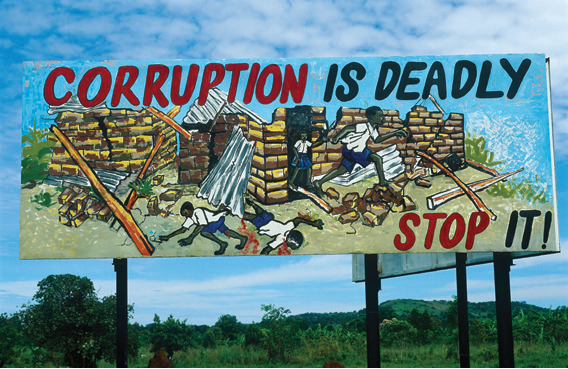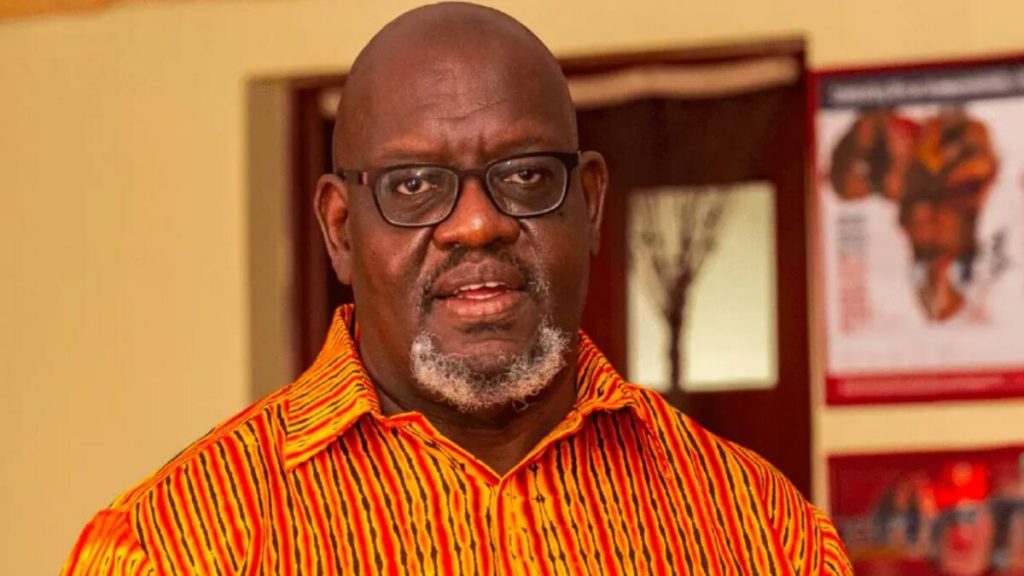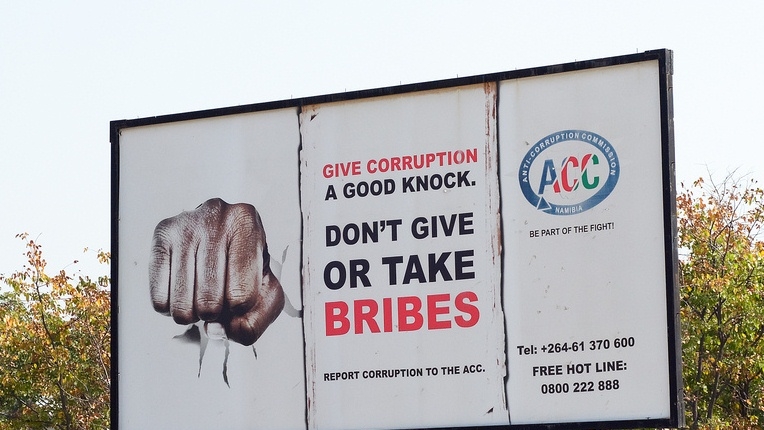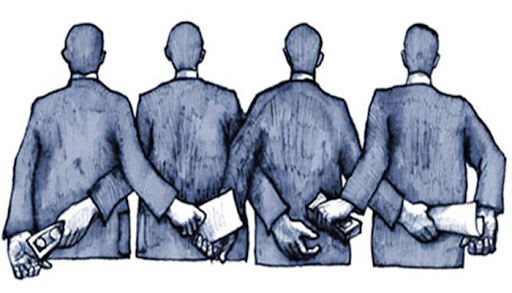
Journalist, activist and anti-corruption legend John Githongo reflects on the shifting story of anti-corruption in Africa, from Western models to new agendas. This is an edited-down version of a piece published in The Elephant.

Corruption, however you define it, is so integral to the way human commercial and political affairs play out that all major global developments in its regard have been driven by geopolitical shifts. This is as true now as it has been for the almost thirty years that I have been working in the anticorruption field, motivated by the realisation that corruption could not be treated as peripheral to the question of development. There was a need for nuanced engagement in understanding what corruption was in different contexts and the factors that under-girded and influenced its existence and impact on people and the worlds in which they lived. I still hold this conviction, observing the ways and the competition between major and emerging newly confident powers in our multipolar world is transforming the terrain in which anticorruption work happens today.
I started off my engagement in this field as the global consequences of the fall of the Berlin Wall in 1989, and the subsequent end to the Cold War, were beginning to be apparent. An intense burst of sunshine illuminated the behind-the-scenes statecraft that had obscured the adversarial geopolitics of the preceding era; not only on the world stage but also in many countries. Citizens of myriad African nations – many enjoying media and a host of other individual freedoms in a real way for the first time – were treated to graphic details of the excesses of elites who had ruled them during the Cold War.
These details of the corruption and human rights abuses became fodder for a fledgling political opposition, civil society, media and other societal formations that had been previously repressed in many countries on the continent. As an actor and active participant in the burgeoning movement that coalesced around the push for the new freedoms and accountability from the state in Kenya, I witnessed the ways in which the sudden interest and engagement of Western nations and their aid agencies in this work benefitted these formations.
It was an exciting time. As our interests coincided with those of these new-found allies, it became possible to leverage their support to move the work to a new level. For those of us who focused our work in the anticorruption area, we were able to amplify the real-world consequences on the ground to the extent that a new age of outrage against corruption set in. Being able to be part of global and regional networks while focusing my own efforts at home enabled me to appreciate the extent to which world geo-politics were mirrored locally; as anticorruption work took hold on the international stage, so too did we see it become an integral part of discourse in Africa.
To this day in nations in the Global South that hold elections – be they democratic or not – contestants invariably have the fight against corruption as one of their key policy offerings. Few things mobilise public opinion more effectively than the corruption of venal elites. The enthusiasm to punish them on the part of electorates and populations is almost always unrelenting.

Dreaming of a democratic, corruption-free world
In retrospect, I can say today that the modern era of anticorruption work arrived in Africa and many other countries in the developing world in the 1990s, as a package defined using Western norms of liberal democracy, human rights, and an open economy. Within a decade, as it become central to the global development agenda with both the IMF and World Bank integrating ‘governance’ into their programmes, it was delivered to many nations of the Global South as conditionalities to loan and broad ‘reform’ programmes.
Bilateral donors, led by what became the dynamic U4 grouping of women development cooperation ministers such as Hilde Johnson of Norway and Claire Short of the UK, articulated an even more ambitious global anticorruption agenda for the Western aid sector.
Civil society organisations like Transparency International and Global Witness were established in the early 1990s and proceeded on a concerted international mobilisation of civic actors against corruption. Led by Peter Eigen, Transparency International mobilised the most far reaching devolved civil society network dedicated specifically to anticorruption in the world.
By 2003 the United Nations Convention Against Corruption was adopted by UN General Assembly. Within another decade, a range of similar regional instruments had been promulgated.

Democracy and good governance in decline
Today in 2024, the underlying assumptions to successful anticorruption work — independent governance institutions, greater transparency and accountability in public life, regular elections and orderly political transition, a free media and civil society, respect of human rights — can no longer be taken for granted.
The Western hegemony regarding anticorruption work has gone the way of many other underlying assumptions of the order that emerged at the end of the Cold War. The liberalisation of the 1990s, and the rise of a multi-polar world made manifest by the rapid and hugely consequential rise of China and India as geopolitical actors, are partly responsible.
The reordering of the world has been hastened by the West’s own contradictions and challenges, which have served to undermine the idea of liberal democracy in the Western mode as the ideal model of governance.
Thirty years on, for Africans, the challenges of translating theory into practice are prompting more people into a much more critical engagement with the assumptions that met the initial embrace of not only liberal democracy but also the focus of anticorruption work as it has been rolled out since the mid-nineties.
The rise of The Rest
The impact on anticorruption work of the “Rise of the Rest” cannot be ignored. The most geopolitically aggressive nations in the world today are not liberal Western-style democracies where anticorruption in the European or American model prevails. In Africa, for example, it is Asia that is attracting a lot of our attention, as more people take note of a number of ‘well governed’ non-democracies that are able to deliver public goods to huge sections of their populations without Western style freedoms.
By well-governed, I mean that states like Singapore, China and Vietnam are able to deliver public goods other than freedom. This idea of what characterises “good governance” — delivery of essential services rather than simple accountability — is fuelling public sphere debates across the continent. The two, of course, should not be mutually exclusive, but the lived experience of many is that they seem to be.
For them then, this ability of some highly organised authoritarian states to deliver the livelihood basics to their populations outstrips the attraction of living in fledgling or compromised democracies, where the policy making process is more inclusive but also slower and often more chaotic. If anticorruption work in this era is to regain the momentum of motivating ordinary people, it must make manifest a balance between ensuring delivery of essential services on one hand and accountability on the other.
Another urgent area of intervention is to honestly confront the crisis of legitimacy. Corruption is often crafted in moral terms, but an urgent contest has set in, muddying the waters of anticorruption work. This is not so much a contest against so-called Western values of democracy and human rights but rather against what is understood, especially by youth and especially in the Global South, as Western hypocrisy and double standards in the export of these values. The ‘international community’ of yesteryear meant an amorphous grouping of countries, NGOs, media organisations and other agencies decisively led by the USA and the EU, bolstered by key allies such as Australia, Canada and New Zealand. Not any more.

Discontent with democracy in Africa: What does it mean for anti-corruption?
In March 2023, the president of one of Africa’s most steady electoral democracies since the early 1990s – President Hakainde Hichilema of Zambia – argued in the Washington Post that, “[Y]ou can’t eat democracy. Human rights may sustain the spirit, but not the body. Particularly in young democracies like mine, governments must deliver economically if they are to retain the people’s consent.”
It is one of the paradoxes of democracy in Africa that while greater democratic and economic freedoms have spurred growth and more open political systems with less fraught transitions, discontent with democracy has been rising among young people.
Youth in Africa’s part of the ‘Global South’ are frustrated. The growing embrace of the term ‘Global South’ itself is indicative of a fledgling consciousness also expressed by the BRICS grouping, for example, that has grown irresistibly in the developing world’s public imagination into the most significant assembling since the Non-Aligned Movement (NAM). Younger Africans in particular are so filled with discontent at the limitations of democracy – democratic freedoms which they now take for granted – that the ongoing rash of coups across the Sahel and West Africa appear to enjoy broad support among Africans who are online and below the age of 40.
Alternatives to Western discourses are also more prevalent in the public sphere, bolstered in some cases by significant actors who have vested interests in encouraging this alienation. The resulting deep scepticism in causes associated with the West requires a re-thinking of how we approach and sustain the anticorruption agenda across the world.
Challenges for civil society
Looking back over these last thirty years, it is sobering to measure the euphoria and heady expectations of that historic moment against the progress made. Not only has corruption not gone away, but some argue that it has worsened. Coups against leaders perceived to be corrupt are once again taking place. Social inequality has manifestly deepened, and the realisation that corruption among elites has intensified the misery of the majority has in turn catalysed public discontent leading to growing political instability in some parts of the world. The return of coups to Africa and the fact that most young Africans are primarily concerned with unemployment and economic mismanagement, presents both risks and opportunities for those engaged in the fight against corruption.
Another important factor driving the discourse in the Global South is the question of debt. How local elites — influenced by their global counterparts — manage or mismanage the debt crisis unfolding for many countries is receiving nuanced attention not only in the policy sphere but also in public discourse. There is growing awareness and frustration with the deeply unfair design of the global financial system and its favourable tilt towards the interests of the Global North. This is catalysing new coalitions of interests with discernible shift in geopolitics that makes the world we inhabit in the 2020s completely different from the historical moment of the 1990s when the global agenda for anticorruption as we know it was largely designed. I believe we must rise to the challenge of defining and shaping the global anticorruption agenda for the present moment.
The future of anti-corruption in a changing world
We must accept that the anticorruption rhetoric of moral exhortations against venal leaders that was so strong in the early 1990s is no longer working in the 21st century. That does not mean that the case for accountability is no longer relevant. However, the legitimacy of the anticorruption agenda going forward depends on the ability of activists and practitioners to make a more compelling connection to solving the very real livelihood issues such as unemployment, economic mismanagement, and the debt crisis that populations across the world are most deeply invested in.
Having laid the foundation in terms of supporting legislation and policy that have not only amplified the importance of the anticorruption agenda but also put in place the frameworks for anticorruption institutions, I believe we now need to invest in creating and sustaining the political good will to make these effective. This work cannot only happen on the national level; it must come hand-in-hand with a reform of the global political and financial systems.
This means fighting for a comprehensive and meaningful redesign of the global financial system for greater equity, reducing the temptation among leaders to profit from, exploit or illegally navigate their way around these contradictions.
It also means creating a more equitable geo-political framework that allows greater accountable across the nations of the world, removing the proverbial fig-leaf enabling global super-powers and their allies to manipulate accountability frameworks to their advantage.
Unless we do so, we will see a continuation of the enabling toxic environment for corruption and gross human rights abuses that has resisted meaningful transformation even after the revolutionary disruption of the 1990s.
For me, thirty years down the road, this means working towards a new agenda for the global anticorruption movement that brings the Rest into conversation with the West as equal partners, investing in the priorities and approaches emerging from all parts of the world that make tangible a renewed commitment to a vision of a more safe, secure and corruption-free world.
Read the full article here.
This is a rather disappointing assessment of 30 years’ work in this field. It talks in the vaguest way about the need for reform of the global financial system but fails to give any reference to the huge AC literature eg this one by Heather Maquette -https://www.wfd.org/sites/default/files/2021-12/Doing-anti-corruption-democratically.pdf (2022) – which gave an overview of some of the material on the subject written in the past decade and introduced me, for example, to the work of Michael Johnston who has been critical of a lot of the work of what he calls the Anti-corruption industry. Johnston indeed is one the few prepared to call a spade a spade and identify power and its inequitable distribution as the “elephant in the room” in most of the industry’s discourse. He put it very clearly in a 2005 book – “Syndromes of Corruption – wealth, power and democracy”
http://www.untag -smd.ac.id/files/Perpustakaan_Digital_1/CORRUPTION%20Syndromes%20of%20Corruption.pdf Michael Johnson 2005
Author
Interesting and useful critique and refs Ronald, thanks – other views?